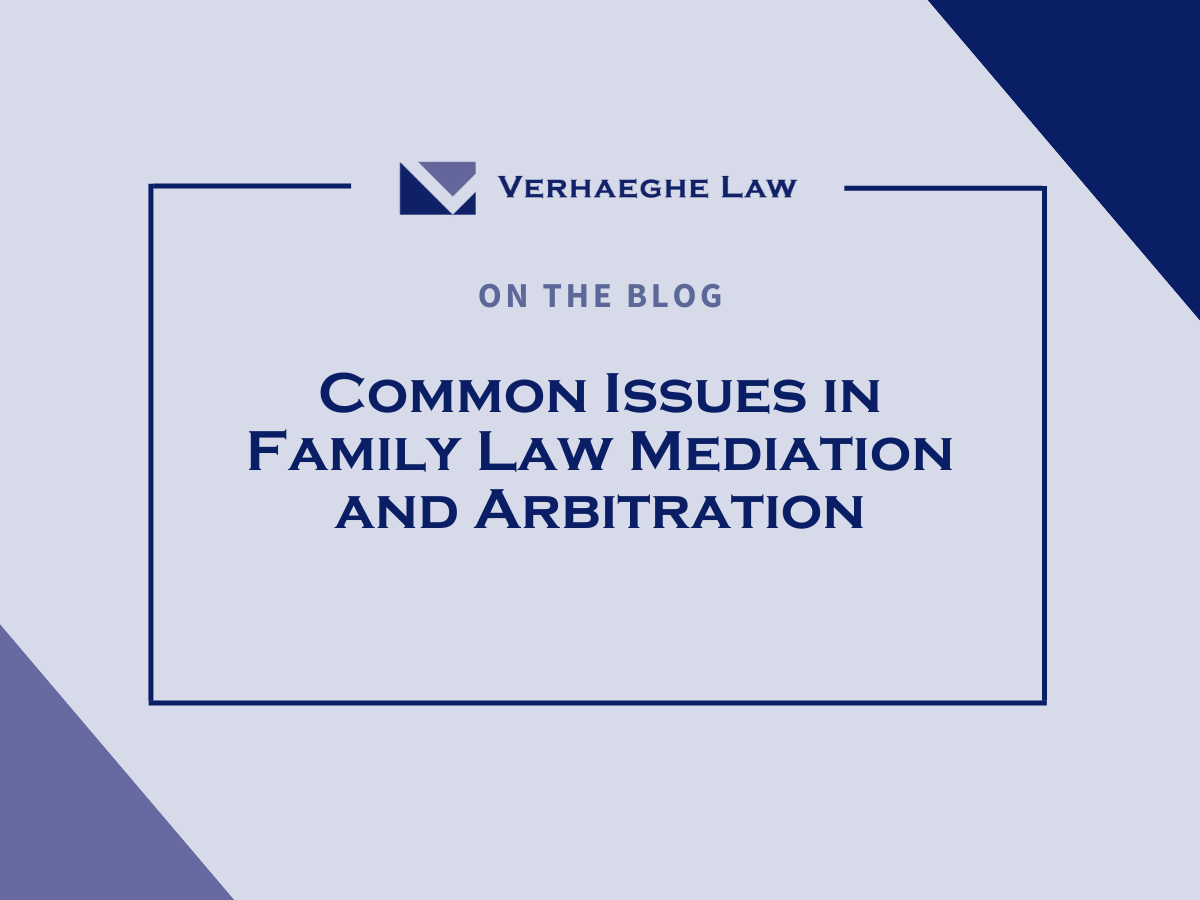Common Issues in Family Law Mediation and Arbitration

It can be difficult to navigate the legalities of a family issue, especially when it comes to mediation and arbitration. Problems may sometimes arise, adding stress to what is probably already an emotional process.
It may be a good idea to familiarize yourself with some of these potential challenges ahead of time, so you can be as prepared as possible. Our Edmonton family lawyers at Verhaeghe Law Office may be able to walk you through your options in a family law matter. Contact us today to schedule a consultation.
What Is Mediation and Arbitration?
In the province of Alberta, the acronym ADR stands for Adaptive, Appropriate, or Alternative Dispute Resolution. Under the umbrella of family law, an ADR typically refers to alternative dispute resolutions that may be used for divorces or separations.
In a family mediation, the two separating spouses have a chance to discuss the terms of their separation with the help of a neutral third party. This mediator may provide guidance and help the parties navigate through agreement-focused conversations regarding parenting plans, division of property, and more. This ADR may be the best choice when both parties are actively willing to collaborate, as it is their responsibility to reach a mutual agreement.
Similarly, arbitration is a resolution option in which a neutral third party meets with the separating spouses. But unlike family mediation, the arbitrator acts similarly to a judge, and may decide on issues and make binding orders based on what they learn from the separating parties.
Unwillingness to Cooperate
Both mediation and arbitration are court alternatives for divorce or family law proceedings in Edmonton. In order for them to work, the two parties must be willing to cooperate with each other to some extent. If there is an unwillingness to work together, then an ADR may not be the best option, and the case may instead have to go to court.
To that point, mediation or arbitration will not work if one of the parties withholds compulsory information or documentation. If you or your separating partner are unwilling to participate in good faith or there is a high degree of emotional intensity, then an ADR may not be successful. In any case, you may want to speak to an Edmonton family lawyer about what option is most appropriate for you and your family.
Deciding If Mediation or Arbitration Is Right for You
A successful mediation or arbitration is one that ends with the signing of legal documents. These agreements may enforce and formalize the decisions that were reached during the ADR process.
In most cases, you have the option of walking away from an ADR without signing any documents. ADRs are not usually compulsory, so they can be terminated if they are not working for one or both parties. In these cases, you will likely have to take your case to court.
Mediators and arbitrators may take the time to ask you questions to determine if an ADR is the most correct choice for your case. For example, if there are safety concerns, high amounts of conflict, a power imbalance, or family violence, they may deem that an ADR is not appropriate.
Contact Our Edmonton Family Lawyers to Schedule a Consultation
Depending on your circumstances, you may find there are more pros than cons to mediation or arbitration. ADRs tend to be more cooperative, child-friendly, private, less time consuming, and cost effective. That being said, you should consider all potential benefits and issues in order to determine what could work best in your situation.
At Verhaeghe Law Office, our family lawyers are available for a consultation if you need legal assistance. Contact us today to schedule a consultation.
** Please note, this article is intended as a general overview on the subject of family law, and is not intended to be legal advice. If you are seeking legal advice, please consult with an Alberta family lawyer.
